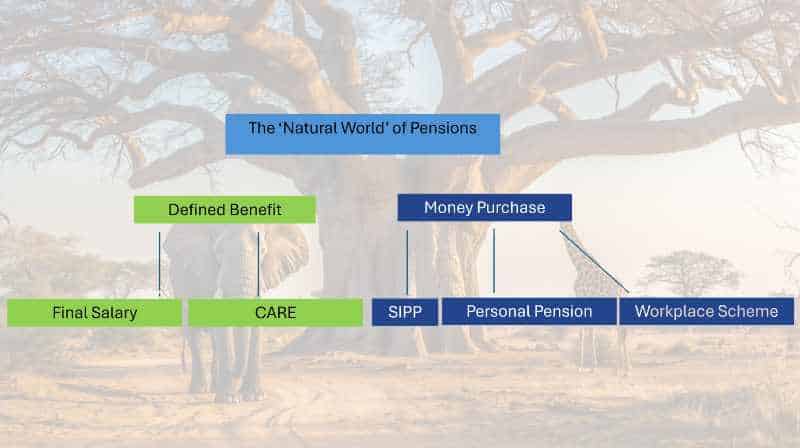
A prospective client I met with recently described her thoughts on her pending retirement; having spent a career working her way to the top, she felt that she was at the mountain peak and it was now time to climb down the other side.
It was the descent that she was anxious about. It was creating more questions than she had answers to. When does she do it? How does she do it? Is it a one-off ‘leap’ from the top straight into retirement or should she approach it in stages?
How does she make sense of the money that she has and what is the best way to structure it to support her in retirement?
Standing on the Precipice, Looking Over the Edge:
As the decision to climb off the mountain nears, understandably, uncertainty creeps in. The familiar rhythm of work life and the reliability of a regular income will be replaced by the, as-yet unexperienced aspects of retirement; how will I cope with the loss of the regular income? How will I fill the time? Will my partner and I get under each other’s feet? Where will my social connections come from?
A realisation that this is the beginning of the end can also be unsettling.
Deciding on the right time to start the descent and the route taken is a personal decision influenced by financial and emotional readiness and health considerations. Some people prefer the ‘safe route’ of phasing into retirement by moving to part-time work or by applying skills and experience in consulting roles. For others, they feel ready to jump straight into it; finish on Friday, and retire on Monday.
There is no right or wrong answer but, for what it is worth, I don’t know many people who have gone straight into retirement and regretted it. “We should have done it sooner” is the normal refrain.
Financial Preparedness
Financial preparedness is crucial for a smooth retirement transition. It requires an evaluation of your current financial landscape; how much money do you have? how much do income do you need each month to live your ideal retirement? Where’s your income going to come from?
If you have a defined benefit pension or other sources of guaranteed income they will provide a sense of security, but if you don’t, how can you generate an income from what you do have? And how can it be done as efficiently as possible to minimise tax and make sure it lasts long enough?
If you are married or have a partner, what happens if one of you dies? What are the financial implications for the surviving spouse?
This is where a financial planner can provide some clarity and help you with your retirement decision-making.
Health Considerations:
Now you aren’t as young as you used to be health will make up part of your decision making. Perhaps you or your partner have health-related issues and you want to make the most of your time together while you can, or you want to avoid the mistakes of others you have heard about whose failing health has changed their retirement plans.
The cost of care is also something to consider. That is both the cost of replacing private medical insurance plans that were previously provided by your employer and the prospect of care costs in later life that will need to be funded somehow.
Emotional Readiness:
Retirement is not just a financial decision; it’s an emotional one. Confronting the unknown can be daunting, and acknowledging the psychological aspects of retirement is crucial. Couples and individuals must engage in honest discussions about their aspirations, fears, and expectations for this new phase of life.
Crafting a Descent Plan:
Develop a retirement plan that aligns with your priorities and aspirations. Consider lifestyle choices, travel plans, hobbies and interests. Craft a budget that reflects your financial resources and desired lifestyle.
Are you world travellers, campervan cadets or stay-at-homers? Whatever your travel desires (or not), there will be implications on your ability to fund them. But, it’s not just about the money; when you are retired, it is easy to put off the more complex decisions until tomorrow, only for them never to be taken.
COVID delayed many retirees’ travel ambitions, with some only just feeling confident enough to start again now. Others though, have missed the boat (or plane). You don’t know what is around the corner; if a period of travel is important to you it is best acted upon to avoid it becoming a regret of leaving it too late.
Preparing for the Unexpected:
You won’t have reached your sixth or seventh decade in life without experiencing some unexpected ups and downs. You will know that sometimes you have to walk through a storm. While it’s not possible to forecast exactly what will happen or when it is still possible to prepare for it.
A starting point is to make sure you have enough money in savings to call on in an emergency. This may be to cover unexpected medical or repair bills or to live off during a period of stock market falls when your pension falls in value.
As mentioned above, it may also include Private Medical Insurance so that you don’t have to wait for treatment on the NHS should anything be required, from physiotherapy to a more intrusive procedure.
Viewing Retirement as a Journey (Perhaps even an adventure):
Those who retire successfully approach retirement as a journey, rather than a destination to reach. It’s a new adventure rather than the end of the road. It’s an opportunity to seek out new experiences, discover passions, and foster connections that enrich this phase of life rather than a time of life to get through.
To quote the author and speak, Jim Rohn:
Get from the day, not through the day.
When I retire I want to live. I don’t want to just exist where the days and weeks pass by in a blur of homogeneity. As I have said before I believe (admittedly without an ounce of professional qualification), that worries and fears are more likely to occupy unfulfilled minds. If we don’t have purpose and fulfilment in our lives that is when the negative thoughts can creep in and lay roots.
Standing at the precipice of retirement, the questions of “when” and “how” can loom large. The descent from the summit of a successful career is a unique journey for everyone. Without thoughtful planning and consideration of financial, health, and emotional factors, the descent can become hazardous. But by taking time to consider what your ideal retirement looks like it can be a fulfilling phase of life.
A client described it to me as her ‘Oyster time‘; a period of waiting to see what came along and to reflect on what she wants from retirement.
If you want to discuss your retirement planning you can contact me here: https://neliganfinancial.co.uk/contact-us/






